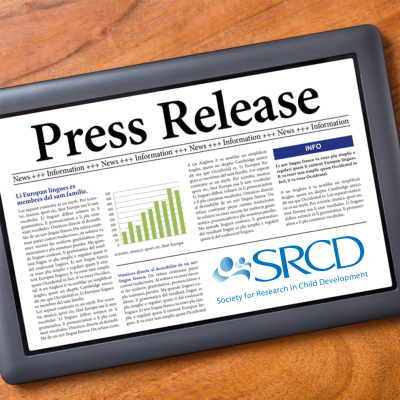Children with Disabilities in Developing Countries at Risk for Harsher Punishment
PRESS RELEASE / CHILD DEVELOPMENT: Embargoed for Release on July 30, 2013
Children with disabilities who live in developing countries are more likely to experience harsh punishment than children without disabilities in those countries. That’s the conclusion of a new study that looked at data from nationally representative samples of about 46,000 parents and other caregivers of 2- to 9-year-olds in 17 low- and middle-income countries; most prior research on children with disabilities has been done in developed countries.
The study, in the journal Child Development, is the largest examination to date of how different forms of disability relate to caregivers’ use of discipline with children in developing countries. It was conducted by researchers at the Eunice Kennedy Shriver National Institute of Child Health and Human Development (NICHD), Duke University, and Virginia Polytechnic Institute and State University, using data from the Multiple Indicator Cluster Survey program developed by UNICEF.
About 1.4 percent of the world’s population is estimated to have disabilities, with 80 percent of these individuals living in low- and middle-income countries. Children with disabilities are especially vulnerable to abuse, exploitation, and violence.
Parents and other caregivers were asked to complete questionnaires about the types of disability their children had; children in the study had cognitive, language, sensory, and motor disabilities. They also were asked about the types of discipline used, including nonphysical (explaining why something was wrong, giving the child something to do, and taking away privileges), psychological aggression (yelling at the child and calling the child a name), physical discipline (spanking with a hand, hitting on the extremities, shaking, or hitting with an object), and severe physical discipline (hitting on the head, beating with an implement). And they were asked whether they believed that physical punishment was necessary to properly raise a child. Countries’ Human Development Index—a measure of the general social and economic status of the country—also was calculated.
Children with disabilities were more likely to have experienced physical and severe physical discipline, and less likely to have experienced only nonphysical discipline, the study found. Disabilities as well as harsh parenting practices, and the belief that corporal punishment is necessary to raise a child properly, were more prevalent in countries with lower standards of living. These results are consistent with research conducted in the United States, Canada, and Western Europe that has shown that children with disabilities are at greater risk of harsh punishment than children without disabilities.
“The findings suggest that policies and interventions are needed to work toward the United Nations’ goals of ensuring that children with disabilities are protected from harsh physical treatment and abuse,” according to Charlene Hendricks, statistician, and Marc H. Bornstein, senior investigator and head of Child and Family Research, both at NICHD, two of the researchers who worked on the study.
The study’s results also speak to the value of intervention efforts and support services, including educating people about disabilities. “If parents are better informed about children’s disabilities, they may gain a better understanding of what types of discipline work best,” Hendricks and Bornstein note. “Programs implemented at a broad societal level may not only directly help families of children with disabilities, but may also have the indirect, additional benefit of helping members of the community develop a better understanding of the nature of various disabilities. This knowledge in turn may lessen social stigma, known to be associated with parental stress, which may then translate into more positive parenting practices.”
The study was supported by the Intramural Research Program of NICHD.
###
Summarized from Child Development, Associations Between Child Disabilities and Caregiver Discipline and Violence in Low- and Middle-Income Countries by Hendricks, C (NICHD), Lansford, JE (Duke University), Deater-Deckard, K (Virginia Polytechnic Institute and State University), Bornstein, MH (NICHD). Copyright 2013 The Society for Research in Child Development, Inc. All rights reserved.


